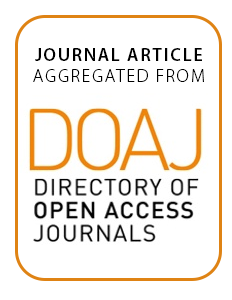Resource information
In the article modern scientific and theoretical positions concerning determination of the effectiveness of soil protection measures on agricultural lands are investigated.
It is analyzed that the protection of land from degradation is one of the most important problems of agriculture, as this process leads to a significant decrease in soil fertility and crop yields. That is why in today's conditions, when the protection of agricultural land became urgent and a priority task, the scientific substantiation of the economic assessment of the damage caused by the degradation of land to agriculture, as well as the development of methods for determining the economic efficiency of the most progressive soil protection measures, technologies and complexes based on their overall Comparative evaluation.
It was established that ground protection measures are a system of various measures aimed at reducing the negative degradation effect on the soil cover and ensuring the preservation and reproduction of soil fertility and integrity, as well as increasing their productivity as a result of rational use.
The economic essence of soil protection measures is the economic effect achieved by preventing damage caused by land degradation to agriculture, as well as for obtaining additional profit as a result of their action.
The economic effectiveness of soil protection measures means their effectiveness, that is, the correlation between the results and the costs that they provided. The excess of the economic result over the cost of its achievement indicates the economic efficiency of soil protection measures, and the difference between the result and the expenditure characterizes the economic effect.
Ecological efficiency is characterized by environmental parameters of the soil cover, namely: the weakening of degradation effects on soils; improvement of their qualitative properties; An increase in production without violation of environmental standards, etc.
Economic efficiency reflects the use of land resources when performing soil protection requirements.
Social efficiency is determined by the improvement of social organizational and territorial conditions of population living: preventing losses of clean products due to soil contamination; reduction of payments from the social insurance fund; Reduction of expenses of the society for treatment of workers in connection with pollution of soils, etc.
When introducing soil protection measures, a soil protection effect is necessary under the condition of an increase in productive capacity of the land only if it is differentiated according to the soil, relief, climatic conditions and specialization of agricultural enterprises with the obligatory application of anti-degradation measures. Therefore, in today's environment, the organization and planning of soil protection measures should take place on the basis of a regional program-targeted approach. Its essence consists in analyzing the initial state of the region, identifying problems and formulating the goal, identifying their priorities. This makes it possible to make an effective decision on the implementation of an optimal set of soil protection measures.
Consequently, the general criteria for the economic evaluation of the effectiveness of the system of soil protection measures are the preservation and improvement of the qualitative characteristics of agricultural land and the environment and the increase of production per unit of land at the least cost.
Indicators of economic efficiency of various types of soil protection measures play an important role in the design and implementation of soil protection measures against degradation. With the proposed approaches, the relevant bodies of land relations, in particular, when developing projects and other documentation on land management, as well as directly landowners and land users, can reasonably plan some or other measures and allocate the necessary material resources for their implementation. This ensures the restoration of degraded lands and the timely prevention of degradation processes.



